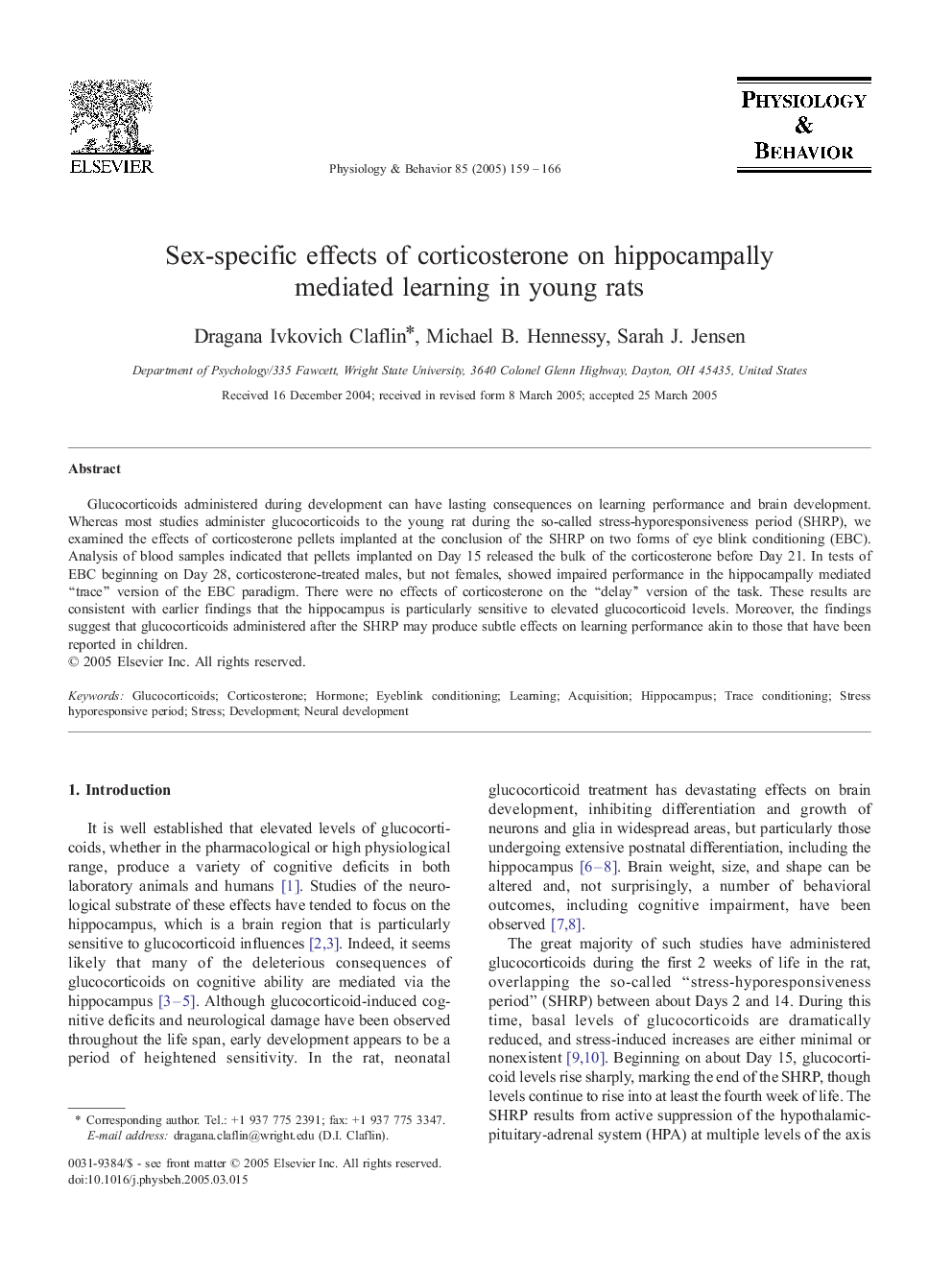| Article ID | Journal | Published Year | Pages | File Type |
|---|---|---|---|---|
| 9150187 | Physiology & Behavior | 2005 | 8 Pages |
Abstract
Glucocorticoids administered during development can have lasting consequences on learning performance and brain development. Whereas most studies administer glucocorticoids to the young rat during the so-called stress-hyporesponsiveness period (SHRP), we examined the effects of corticosterone pellets implanted at the conclusion of the SHRP on two forms of eye blink conditioning (EBC). Analysis of blood samples indicated that pellets implanted on Day 15 released the bulk of the corticosterone before Day 21. In tests of EBC beginning on Day 28, corticosterone-treated males, but not females, showed impaired performance in the hippocampally mediated “trace” version of the EBC paradigm. There were no effects of corticosterone on the “delay” version of the task. These results are consistent with earlier findings that the hippocampus is particularly sensitive to elevated glucocorticoid levels. Moreover, the findings suggest that glucocorticoids administered after the SHRP may produce subtle effects on learning performance akin to those that have been reported in children.
Keywords
Related Topics
Life Sciences
Biochemistry, Genetics and Molecular Biology
Physiology
Authors
Dragana Ivkovich Claflin, Michael B. Hennessy, Sarah J. Jensen,
